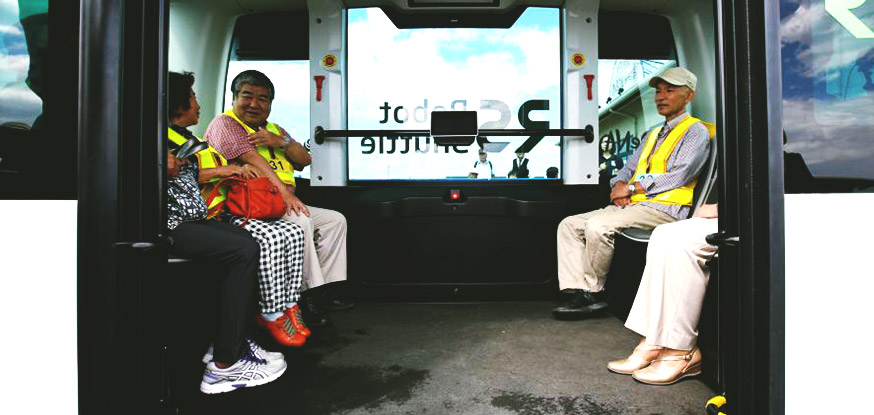A Japanese community has introduced driverless technology as part of an initiative specifically designed to keep its elderly citizens active and 'on the move'. The rural town of Nishikata, which is located around 115KM from the capital city of Tokyo, has decided to experiment with the autonomous technology in an effort to enable its elderly population to continue participating and being active in community life.
There has been a significant reduction in bus and taxi services in the town - and that has rather inevitably left many of the Nishikata's elderly population isolated from community affairs. However, the emergence of driverless technology which is being experimented with in relation to public transportation services in cities such as Singapore and Paris, could offer a cost-effective and efficient solution to the issue of greying populations in rural parts of Japan.
A spokesman for the innovative project has announced that if the experiments currently being conducted are a success then it could subsequently lead to the launch of full-scale self-driving services for remote communities by 2020.
The Japanese government has indicated its ambition to convert highway rest stops into hubs from which to ferry the elderly to medical, retail and banking services. Hiroshi Nakajima, of mobile gaming software firm DENA that has recently branched out into the automotive sector says the demand for mobility services such as driverless buses and cars is growing in rural Japan and is an issue which requires urgent address.
He said: "Smaller towns in Japan are greying even faster than cities, and there are just not enough workers to operate buses and taxis. But there are a lot of service areas around the country, and they could serve as a hub for mobility services."
It has been disclosed that during the initial trials of the driverless six-seater which has been entitled Robot Shuttle, elderly residents of Nishikata were transferred between a service and a municipal complex that delivered healthcare services.
However, government figures have said that the town mirrors Japan's population profile, with roughly a third of its 6.300 residents aged 65 or over, which represents a rise of a quarter from when last surveyed four years. One elderly resident of Nishikata Shizu Yuzawa shared her concerns with growing old in a town where public services are rapidly decreasing - and said she would be receptive of the introduction of driverless shuttle buses and cars. She said: "I worry about not being able to go out when I'm no longer able to drive. As people in towns become older and younger people move away, it's going to become more difficult to get help getting around."

